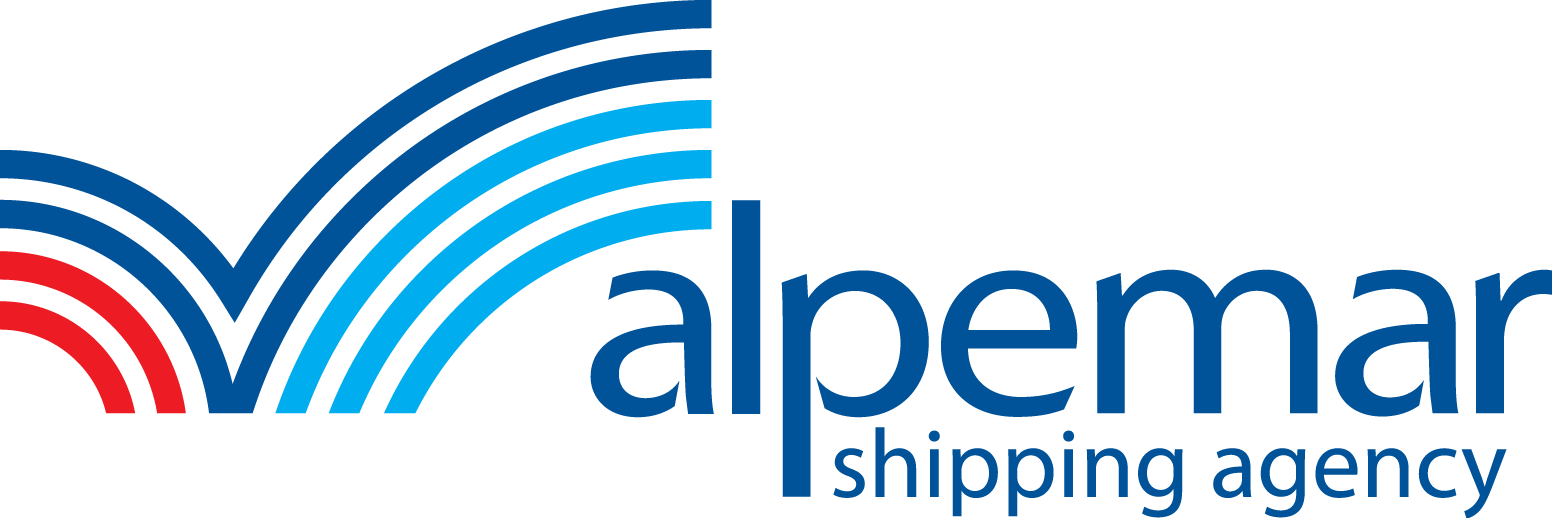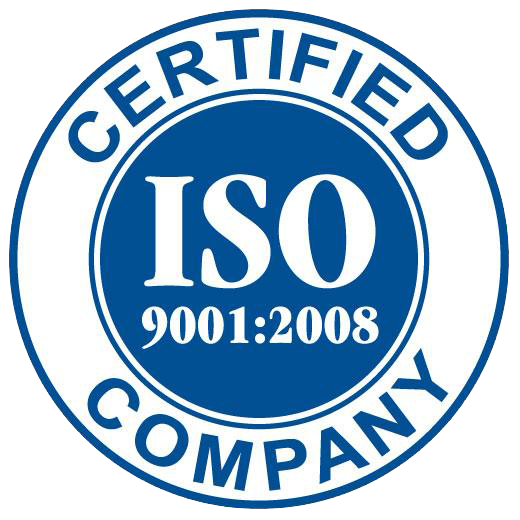Resolution Nº 693-E/17 – New Control System on the ability of loading holds and tanks of vessels and lighters . Report Nº 177/17
Date: 28/10/2017
23-OCT-2017
Source: National Food Safety and Quality Service (SENASA)
RESOLUTION Nº 693-E/17 – NEW CONTROL SYSTEM ON THE ABILITY OF LOADING HOLDS AND TANKS OF VESSELS AND LIGHTERS
We inform our Members that the National Food Safety and Quality Service (SENASA), has determined a new ‘Control system on the ability of loading holds and tanks of vessels and lighters for the export of grains, their products and by-products’.
The aforementioned regulation was published in today Official Bulletin. It shall come into effect as from the first working day of the month following its publication, in this case it shall be November 1st of the current year, and it shall become a pilot system for the term of one (1) year from its entry into force.
Among the aspects to be highlighted, it shall be applied to every hold and tank of vessels for the loading of grains, their products and by-products for export ‘that shall require loading inspection by SENASA’. It also determines the criteria to object or reject holds or tanks, it establishes a control procedure, which indicates that when buying countries shall require official controls, the Body shall intervene and when the buying country shall not require official intervention, verification shall be carried out through any of the registered certifying entities.
A training activity is being coordinated for the concerned sector. It shall be carried out at this Centro soon. An attending invitation shall be duly sent.
Plea se find the Resolution below.
ANDRÉS MONZÓN
General Manager
NATIONAL FOOD, SAFETY AND QUALITY SERVICE
Resolution 693-E/2017
City of Buenos Aires, October 19th, 2017
IN VIEW OF File No S05:0005876/2017 from the MINISTRY OF AGRO-INDUSTRY, Law No 27233, Decree-Law No 6698 on August 9th, 1963, Decree No 1585 on December 19th, 1996, Resolutions No 302 on December 30th, 1991 and 1075 on December 12th, 1994, both form the ex-SECRETARIAT OF AGRICULTURE, CATTLE AND FISHING, 28 on February 7th, 2005 from the ex-SECRETARIAT OF AGRICULTURE, CATTLE, FISHING AND FOOD, 44 on January 6th, 1994 and 409 on September 30th, 1996, both from the ex-ARGENTINE INSTITUTE OF VEGETAL HEALTH AND QUALITY, 260 on June 6th, 2014 modified by No 37 on January 26th, 2017, both from the NATIONAL FOOD, SAFETY AND QUALITY SERVICE, and
CONSIDERING:
That Resolution No 302 on December 30th, 1991 from the ex-SECRETARIAT OF AGRICULTURE, CATTLE AND FISHING determines that the quality certification of grains and by-products exported shall be performed by the Argentine Certificate of Quality, currently issued by the NATIONAL FOOD, SAFETY AND QUALITY SERVICE, or by certificates issued by private entities or other institutions duly registered.
That by Resolution No 44 on January 6th, 1994 from the ex-ARGENTINE INSTITUTE OF VEGETAL HEALTH AND QUALITY it was created the Register of Controllers and Certifiers of Grains and By-products for Export, establishing the obligations and operational requirements for control entities, which shall be subject to the official control of this National Service.
That these entities are qualified to inspect and verify the basic conditions that holds shall meet for the correct receipt of the cargo and, in turn, these same entities currently verify similar requirements provided in international contracts.
That by Resolution No 1075 on December 12th, 1994 from the ex-SECRETARIAT OF AGRICULTURE, CATTLE AND FISHING quality standards, sampling and methodology applied to grains and by-products were passed.
That Resolution No 409 on September 30th, 1996 from the ex-ARGENTINE INSTITUTE OF VEGETAL HEALTH AND QUALITY determines the inspection and certification procedures for import, export and international transit vegetable style='width:100%;font-family:Verdana,Arial,sans-serif;font-size:14px;' s.
That it is considered within the concept of vegetable style='width:100%;font-family:Verdana,Arial,sans-serif;font-size:14px;' s all kernels, considering the ones foreseen in Article 105, Decree-Law No 6698 on August 9th, 1963, that is, any nuts not destined to the sowing of cereals, oleaginous and legumes.
That Resolution No 28 on February 7th, 2005 from the ex-SECRETARIAT OF AGRICULTURE, CATTLE, FISHING AND FOOD passes the Handbook of Procedures for the Inspection of Hol ds.
That Resolution No 260 on June 6th, 2014 from the NATIONAL FOOD, SAFETY AND QUALITY SERVICE establishes the phytosanitary and quality control of products and by-products of grains for export.
That Article 1° from Law No 27233 declares of national interest the quality of raw materials produced by silvicultural activities and agro-food, as well as the national and international trade of such products and by-products.
That Article 2° of the aforementioned law declares of public order the national rules by which it shall be regulated the development of all those actions destined to preserve the hygienic-sanitary condition of the food of agriculture and livestock origin.
That, for its part, Article 6° of said law establishes that for the fulfillment of the responsibilities assigned and the purposes determined in the National Food Control System created by Decree No. 815 on July 26th, 1999, NATIONAL FOOD, SAFETY AND QUALITY SERVICE shall have the powers specifically granted by current legislation, being empowered to establish procedures and systems for public and private control of animal and vegetable style='width:100%;font-family:Verdana,Arial,sans-serif;font-size:14px;' s health and quality and federal traffic, imports and exports of products, by-products and derivatives of animal and vegetable style='width:100%;font-family:Verdana,Arial,sans-serif;font-size:14px;' origin, the latter in the stages of production, processing and collection, corresponding to its jurisdiction, agrofood, veterinary drugs and phytosanitary products, fertilizers and amendments, adapting the hygienic-sanitary inspection and certification systems currently used.
That it is necessary, for reasons of structural reorganization and due to the regionalization and operational decentralization of this National Service, to readjust administrative and procedural aspects of the current methodology for the inspection and approval of any hold or tank of vessel/lighter intended to transport grains, their products and by-products in bulk for export.
That according to the new policies promoted by the National Government in terms of competitiveness and cost reduction, it is essential to optimize certain operational aspects, such as the authorization of holds and tanks of vessels and lighters for export, using the services of specialized companies on the subject, but, in turn, exercising due control on their actions through operational supervision and audit of their records, suitability and abilities.
It has been observed that in many cases there could be a duplication of controls, adding unnecessary costs to the system and reducing competitiveness to Argentine grains, their products and by-products.
That it is necessary to adapt the current operation through a new control system of holds and tanks prior to the loading of export goods, in order to guarantee compliance with the minimum essential requirements for the receipt of grains, their products and by-products in holds and tanks.
That the Department of Legal Affairs has intervened as competent body.
That the undersigned is competent to issue this act by virtue of the powers established in Article 6° of Law No. 27233 and Article 8°, subsections e) and f) of Decree No. 1585 on December 19th, 1996, replaced by its similar No. 825 on June 10th, 2010.
Therefore,
THE PRESIDENT OF THE NATIONAL FOOD, SAFETY AND QUALITY SERVICE
DETERMINES:
ARTICLE 1°.- Control system on the ability of loading holds and tanks of vessels and lighters for the export of grains, their products and by-products. It is established the ‘Control system on the ability of loading holds and tanks of vessels and lighters for the export of grains, products and by-products’, which shall become a pilot system for the term of ONE (1) year from the entry into force of this resolution and which enforcement authority shall be the NATIONAL FOOD, SAFETY AND QUALITY SERVICE.
ARTICLE 2°.- Scope. The Control system on the ability of loading of holds and tanks of vessels and lighters for the export of grains, their products and by-products shall be compulsorily applied to all holds and tanks destined to the loading of grains, their products and by-products for export that shall require loading inspection by this National Service.
ARTICLE 3°.- Area of application. This Control System shall be applied in fluvial and maritime ports, outer ports, waiting zones, roads or any other place that shall be considered suitable style='width:100%;font-family:Verdana,Arial,sans-serif;font-size:14px;' for the verification of the established conditions.
ARTICLE 4°.- Requirements to be verified for the authorization of holds and tanks. The procedure for the contro l on the ability of loading holds and tanks is intended to ensure, prior to the loading, the compliance with the following essential minimum requirements for the receipt of grains, their products and by-products in holds and tanks. Such requirements replace the ones determined in Resolution No 28 on February 7th, 2005 from the ex-SECRETARIAT OF AGRICULTURE, CATTLE, FISHING AND FOOD..
Subsection a) To determine that the holds and tanks shall be free of live insects, moisture, removable rust, objectionable odors, fresh paint, waste from previous cargoes, rodents, their excrement or other causes that shall arise and alter the quality of the goods.
Subsection b) To apply the following criteria in order to object or reject holds or tanks:
The objection or rejectio n of the hold or tank shall take place when the presence of at least ONE (1) of the reasons listed below shall be verified, provided they shall totally or partially compromise the condition and quality of the goods.
Paragraph I) Live insects or arachnids.
Holds and tanks shall not be considered suitable style='width:100%;font-family:Verdana,Arial,sans-serif;font-size:14px;' for receiving cargo if live insects or arachnids are detected..
Paragraph II) Removable rust shells.
The presence of removable rust shells at the touch shall be considered a reason for non-acceptance, it shall be removed during inspection. The hold shall not be considered suitable style='width:100%;font-family:Verdana,Arial,sans-seri f;font-size:14px;' until this situation shall be solved.
In order to determine the presence of removable rust shells, the procedure to be followed involves exerting a slight pressure with the palm of the gloved hand over the potentially removable rust shell. No other element or instrument shall be used.
Paragraph III) Moisture on a significant surface.
It shall be due to condensation, wash water and/or filtration. In the first TWO (2) situations, if the surface is small or forms a thin layer on the walls of the hold, it shall be objected and the vessel's crew shall be instructed to dry it. In case of filtration, if remediable, they shall be given time for their repair. The hold shall not be considered suitable style='width:100%;font-family:Verdana,Arial,sans-serif;font-s ize:14px;' if streams of water on the walls or puddles in the planes are noticed.
Paragraph IV) Damages causing filtration.
Damages caused by drillings or structural failures in ballast tanks shall cause filtration. In such cases, the inspection shall show the presence of a stream of water with puddle in the lower part. The hold shall not be approved until the damage shall be repaired.
Paragraph V) Commercially objectionable odors.
For the purposes of this regulation, commercially objectionable odors shall be those causing contamination or deterioration of the goods.
The main objectionable odors that shall be detected during the inspec tion are generally related to fishmeal, guano, chemical products, sulfur, paint or bilge due to lack of cleaning. In these cases, a reasonable ventilation time shall be allowed, then the hold/tank shall be closed for one hour. Afterwards, the persistence of odors shall be verified, in which case the hold shall be rejected.
Paragraph VI) Fresh paint in a significant surface.
The presence of fresh paint shall be detected by hand, touching the corresponding surface, and it shall be condition of rejection.
Paragraph VII) Contaminant waste from previous cargoes.
For the purposes of this regulation, contaminant waste from previous cargoes shall be considered all those that shall be found in hold or deck, capab le of contaminating the shipment to be exported from the phytosanitary point of view or the quality of the product. These shall be:
iron ore, coal, sulfur, fertilizers, sugar, alumina, fishmeal, weed seeds and residual grains.
Paragraph VIII) Rodents and excrement.
In all those cases in which the presence of rodents or excrement shall be detected, the hold shall be rejected.
Paragraph IX) Other causes of rejection/objection.
Faulty closure of covers, deficient or nonexistent separation between cargoes or leak of hydraulic fluids.
ARTICLE 5°.- Control procedures. The v erification of the fulfillment of the requirements for the authorization of holds and tanks shall be carried out by means of the following control procedures:
a) Operations requiring official controls of holds/tanks: In the case of official controls of holds/tanks from the buying countries, the interested party shall request Official Services from the NATIONAL FOOD, SAFETY AND QUALITY SERVICE (SENASA) in order to obtain the certificate of loading ability, without requiring the intervention of a control and certification body..
b) Operations not requiring official controls of holds/tanks: When the buying country shall not require the official intervention of holds/tanks, the verification of loading ability shall be performed by any of the certifying entities registered at the Register of Controllers and Certifiers of grains and by-products for export, created by Resolution No 44 on January 6th, 1994 from the ex-ARGENTINE INSTITUTE OF VEGETABLE HEALTH AND QUALITY.
ARTICLE 6°.- Operating procedures. In order to verify the fulfillment of the requirements determined in Article 4° of this resolution, the Control system on the ability of loading holds and tanks of vessels and lighters for the export of grains, their products and by-products, includes the following operating procedures:
Subsection a) Official Control: It shall be performed according to Article 4° within this resolution.
Subsection b) Verification by certifying entities: It shall be performed according to the procedure described below:
Paragraph I) The shipping ag ency shall carry out the loading ability request to any of the certifying entities registered at the Register of Controllers and Certifiers of grains and by-products for export and inform SENASA in a reliable way the date, estimated time when the inspection shall be carried out, place where it shall take place and number of IMO (International Maritime Organization). This notice shall be performed TWENTY-FOUR (24) hours in advance, notwithstanding that it shall be reduced, prior agreement of the Body.
Paragraph II) The required entity shall perform the verification in situ of the compliance of the current resolutions, with the exclusive intervention of verifiers authorized by SENASA and, when appropriate, certify the ability of the hold/tank.
Additionally, it shall inform the decision to this National Service, with the corresponding documen tary support (documents and/or photographic or audiovisual material, if applicable).
Paragraph III) SENASA shall determine an electronic documentary system that shall allow the corresponding procedures and communication. Until this system shall be implemented, or when it shall not be available due to other reason, communications shall be performed in writing.
ARTICLE 7°.- Intervention and supervision of the running of the System by the NATIONAL FOOD, SAFETY AND QUALITY SERVICE. SENASA shall develop the following actions:
Subsection a) To receive the appointment of control companies responsible for the verification of holds.
Subsection b) To receive the hold/tank ability certificates issued by the contro l companies.
Subsection c) To supervise the verification tasks on the basis of risk analysis and to perform technical audits to the authorized control companies. In case of disagreement between the SENASA supervisor and the acting verifier, the former shall inform his superiors, who shall decide on the pertinent authorization of the hold/tank ability.
Subsection d) In case of TWO (2) or more control entities acting simultaneously, and in case there shall be no coincidence in their decisions, either party shall request the intervention of SENASA to solve the conflict. In this case, the official opinion shall be final.
ARTICLE 8°.- Register of Hold’s Verifiers. It is created the Register of Authorized Holds’ Verifiers, which shall work within the scope of the Agrofood Quality Department under the National Directorate of Innocuousness and Food Safety and Quality of this National Service. To this purpose, the following requirements are established:
Subsection a) To submit application for registration either personally or through a registered control company.
Subsection b) To be licensed by the Unique Register of Agrofood Chain (RUCA), in the case of Classification Experts on Cereals and Oleaginous.
Subsection c) To comply with the specific training that shall be given for these tasks.
ARTICLE 9°.- Delegation of powers. The Agrofood Quality Department under the National Directorate of Innocuousness and Food Safety and Quality of this National Service is empowered to pro vide the supplementary procedures that shall be necessary to implement its effective operation. This Directorate shall issue the technical opinions on the interpretation of these regulations.
Moreover, and to this purpose, the Information Technology Department under the Technical and Administrative National Department is instructed to develop, within a period of SIXTY (60) days after its entry into force, the computer system mentioned in Article 6° of this resolution, to be operated online.
ARTICLE 10.- Exception. In the case of operations not requiring official intervention, it is excluded the application of:
Subsection a) Resolution No 28 on February 7th, 2005 from the ex-SECRETARIAT OF AGRICULTURE, CATTLE, FISHING AND FOOD. < /p>
Subsection b) from point 2.2 (inspection) of Appendix I- Administrative and technical procedures, Module I of Resolution No 409 on September 30th, 1996 from the ex-ARGENTINE INSTITUTE OF VEGETABLE HEALTH AND QUALITY.
Subsection d) Rule XXIII (Export of Grains) of Resolution No 1075 on December 12th, 1994 from the ex-SECRETARIAT OF AGRICULTURE, CATTLE AND FISHING, when applicable.
ARTICLE 11.- Sanctions. Infractors to this resolution shall be subject to sanctions that may correspond in accordance with the provisions of Chapter V of Law No. 27233.
ARTICLE 12.- Incorporation. This resolution is incorporated to the Third Book, First Part, Title I, Chapter II, Section 7° and to the Third Book, Second Part, Title V, Chapter I of the Thematic Index of the Normative Digest of the NATIONAL FOOD, SAFETY AND QUALITY SERVICE, passed by Resolution No 401 on June 14th, 2010 and its complements Numbers 800 on November 9th, 2010, 416 on September 19th, 2014 and 445 on October 2nd, 2014, all of them of this National Service.
ARTICLE 13.- Validity. This resolution shall become into effect as from the first working day of the month following its publication in the Official Bulletin.
ARTICLE 14.- This be communicated, published, passed on to the OFFICIAL NATIONAL REGISTRY and filed. — Jorge Horacio Dillon.
Atte:
Alpemar -Shipping Agency






